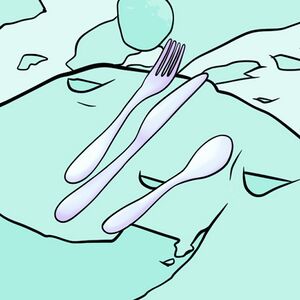Sustainability Randomizer: Difference between revisions
(Created page with "{{Event |Name=Sustainability Randomizer |Location=Het Wilde Weg |Date=2023/07/18 |Time=14:00-18:00 |PeopleOrganisations=Alice Picco |Type=HDSC2023 |Web=Yes |Print=No }} thumb This workshop focuses on promoting food sustainability and zero-waste practices by encouraging participants to think about local, seasonal ingredients and challenging them to create delicious dishes using a food randomizer. The main objectives of thi...") |
No edit summary |
||
| (One intermediate revision by the same user not shown) | |||
| Line 20: | Line 20: | ||
* Encouraging creativity and experimentation: By using a food randomizer and challenging participants to create dishes with specific sets of ingredients, this workshop encourages creativity and experimentation in the kitchen. This can lead to the discovery of new flavor combinations and techniques that can be applied to future cooking practices. | * Encouraging creativity and experimentation: By using a food randomizer and challenging participants to create dishes with specific sets of ingredients, this workshop encourages creativity and experimentation in the kitchen. This can lead to the discovery of new flavor combinations and techniques that can be applied to future cooking practices. | ||
<gallery> | |||
Hdsc day2 10.jpg | |||
Hdsc day2 28.jpg | |||
Hdsc day2 31.jpg | |||
Hdsc day2 32.jpg | |||
Hdsc day2 35.jpg | |||
</gallery> | |||
'''Sustainable eating as a collective challenge:''' | '''Sustainable eating as a collective challenge:''' | ||
Latest revision as of 10:57, 6 September 2023
| Sustainability Randomizer | |
|---|---|
| Name | Sustainability Randomizer |
| Location | Het Wilde Weg |
| Date | 2023/07/18 |
| Time | 14:00-18:00 |
| PeopleOrganisations | Alice Picco |
| Type | HDSC2023 |
| Web | Yes |
| No | |
This workshop focuses on promoting food sustainability and zero-waste practices by encouraging participants to think about local, seasonal ingredients and challenging them to create delicious dishes using a food randomizer.
The main objectives of this workshop are:
- Encouraging the use of local and seasonal ingredients: By using ingredients that are available in the local area and in season, we can promote the consumption of fresh produce that hasn't been shipped from far away. This reduces the carbon footprint of the food and supports local farmers and businesses.
- Reducing food waste: The workshop challenges participants to use all of the ingredients and find creative ways to incorporate them into their dishes. This helps to reduce food waste and encourages participants to think about the environmental impact of throwing away food.
- Promote zero-waste principles: By emphasizing the importance of using all of the ingredients and reducing waste, this workshop promotes zero-waste principles like using vegetable scraps to make stock or to grow more local sustainable produce.
- Encouraging creativity and experimentation: By using a food randomizer and challenging participants to create dishes with specific sets of ingredients, this workshop encourages creativity and experimentation in the kitchen. This can lead to the discovery of new flavor combinations and techniques that can be applied to future cooking practices.
Sustainable eating as a collective challenge:
Participants will begin by brainstorming and gathering a variety of ingredients that are in season and locally sourced. This can include fruits, vegetables, herbs, grains, and other ingredients that are available in the area during the time of the workshop. The goal is to choose a diverse range of ingredients that can be combined to create a delicious and healthy dish.
Once the ingredients have been gathered, they will be placed into a food randomizer tool. The randomizer will group the ingredients into sets of 4/5, which will then be assigned to each group of participants. Each group will receive a set of ingredients and be challenged to create a dish that incorporates all of the ingredients in some way. The challenge is to use all of the ingredients in a creative and delicious way, without generating any waste. This encourages participants to think outside of the box and experiment with new flavor combinations and cooking techniques. Participants can collaborate and work together to come up with the perfect dish that showcases the unique flavors and qualities of each ingredient.
Throughout the process, participants will be encouraged to consider the environmental impact of their choices and find ways to reduce waste. For example, they might choose to use every part of the ingredient, including the stems and leaves, or find ways to repurpose leftovers into a new dish. The emphasis on zero-waste cooking helps to promote sustainability and encourages participants to think about how they can make a positive impact on the environment through their food choices. This part of the workshop is designed to be fun, interactive, and challenging. It encourages participants to think creatively, experiment with new ingredients, and consider the impact of their food choices on the environment.
The workshop will conclude with a showcase of all the dishes and a proper feast (!!!), where participants will be able to taste and enjoy the delicious results of their work.
- Participants: Anyone!!! whether they can/like to cook or not :)
Bio
Hi! My name is Alice (he/they) and I am a Digital Humanities student with a background in Anthropology and cultural studies. My interests are UX design, anthropology of the internet, new media art, 3D modeling and - as you may have guessed - i love cooking!!!
The idea for this workshop comes from a very visible collective need to make eating more sustainable and no-waste as possible, as well as from the important concept and useful skill of "making the best out of what you have". Let's say: it's easier to cook something delicious with a dozen expensive fancy ingedients but what if all you have is four random things?





